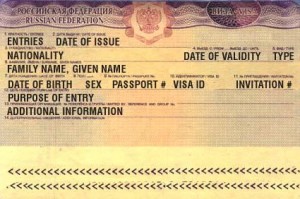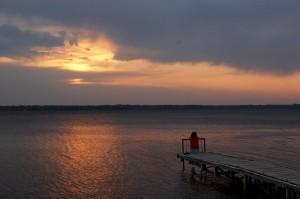I don’t mean to launch into a diatribe, but its my blog and I feel like ranting about the so-called ‘disaster in the gulf.’
 1. This is a product of drilling for oil. If we’re going to insist on using the combustion engine, we have to realize the consumers are as much at fault here as BP. If we were not buying up oil like it was gold, then they wouldn’t push themselves to drill it out of the ocean with such urgency that it causes them to be rushed and thus a bit haphazard.
1. This is a product of drilling for oil. If we’re going to insist on using the combustion engine, we have to realize the consumers are as much at fault here as BP. If we were not buying up oil like it was gold, then they wouldn’t push themselves to drill it out of the ocean with such urgency that it causes them to be rushed and thus a bit haphazard.
2. Can people please stop blaming BP like they are shocked that a company would put the environment or human beings in danger in return for profit? Lets not be naive. The company is not Tony Hayward, who is also not a super villain who is secretly delighted by the spill. The company is the stock holders, who will do anything (including spend their fortune on an ad campaign mid-crisis) to keep the shares from losing value. There is nobody who deserves to have his or her ass kicked more than the stock holders, good luck Mr. President, in finding them all and kicking them a good one.
3. I’m tired of seeing oil-saturated birds and wetlands. We take a very large, very toxic dump on the environment on a daily basis all across the planet, this really isn’t any different. People are not willing to move past the combustion engine (see point #1) so they can’t blame anyone for oil-soaked birds but themselves. Put down your remote, pick up a pen and write your state representative to support mass transportation and clean, renewable energy. Otherwise don’t criticize BP for pouring oil down fish throats. Also, don’t call anyone who wants to progress past outdated technology a hippie. I doubt Ben Franklin, Alexander Graham Bell, or Eli Whitney would enjoy that type of labeling, and I don’t feel like I have dreadlocks forming simply because I think wind energy is more intelligent than digging for dead dino bones to light on fire.
 4. If Americans want more jobs (and I think they should be actively demanding them) then they need to force their representatives to enact laws that ban or prohibit outsourcing. We have high unemployment at home while our electronics, automotives and chemicals are produces abroad. Being the jobs home, put people to work, and get more funding for our science programs so we don’t loose our innovative edge. Also, give grants for clean or renewable energy research and reward people who provide solutions instead of point out problems.
4. If Americans want more jobs (and I think they should be actively demanding them) then they need to force their representatives to enact laws that ban or prohibit outsourcing. We have high unemployment at home while our electronics, automotives and chemicals are produces abroad. Being the jobs home, put people to work, and get more funding for our science programs so we don’t loose our innovative edge. Also, give grants for clean or renewable energy research and reward people who provide solutions instead of point out problems.
5. I’m supremely pissed that the real bill for this crisis is going to come out of our pockets. The reserves of oil under the sea in the gulf belong to our country, yet a British BP comes in and sucks it out, slaps a sticker on it and sells it back to us for a profit. Once this all blows over, you can expect gas prices to one day go up enough for BP to recoup its losses in the gulf. After all, the Exxon Valdez crisis was a disaster that is quite aptly comparable, and yet Exxon today is the largest company in the world. Anyone who doesn’t think this bill is landing on them isn’t look at the larger picture- which is to say, that we’re essentially going to pay BP for this misstep.
6. I’d like to suggest someone slap the media quite hard for their constant nagging. When did the media in the USA become as lame as the politicians? These folks are supposed to be reporters, which means they should be doing a bit of research from time to time. Instead, we have poor Admiral Thad Allen up there making statements and these talking heads (the reporters) are fixated on all the wrong aspects of this seemingly never-ending story. The media has made this oil spill the only thing happening in the world. I want to hear about the news. This is not new, this is over 50 days old. And the media seems more than happy to keep a constant ticker on how much they harp on one story instead of report on what is actually happening now in the world. It makes me feel like the media is intentionally focusing on this to avoid having to do any real work. Meanwhile, we have real issues going on around the world that Americans should be aware of, and all they know about it how the media is trying to portray everyone as incompetent. The only really incompetent ones are the folks at CNN, Fox and every other major network that has long since stopped being respectable.
7. Finally, and this is a positive point for a change, I’d like to point out how awesome I think Thad Allen is. This military man, the ‘incident commander’ is a straight-shooting guy that really doesn’t’ bullshit his way through a press conference or dodge answers. If he were to run for office tomorrow I’d click ‘yes’ simply because he isn’t a politician. Reporters ask him questions and he gives an answer. Meanwhile, at a press conference yesterday, the White House spokesperson standing behind Than Allen interrupted several of his straight-forward answers to back peddle, blame shift, and generally make himself look like a lawyer/villain from a Tim Allen movie. I’m so outraged by the type of person who goes into politics (in both/all parties) that it is actually a real shock to see someone answer a questions bluntly. Way to go, Thad, and keep up the straight shooting. Also, you just might be the military’s best spokesman at present.
That is all I have to say about the disaster in the gulf….for now.
 We recently watched “Running the Sahara” a documentary about three dudes who literally ran from west to east across the Sahara. After watching that epic tale unfold we thought we’d search for a compiled online list of awesome cube-abandoning stories and adventure tales. After searching for this list for some time, we discovered it does not yet exist and we’d like to compile one to share with the world. Thus, if you have any favorite films about quitting your job to travel, or simply doing an outrageous event like running the Sahara or the Mongol Rally, then submit your ideas and we’ll compile them into, hopefully, a TOP 100 CUBE ABANDONING FILMS list that we’ll be posting on our website. We’d also love to have a similar list about books.
We recently watched “Running the Sahara” a documentary about three dudes who literally ran from west to east across the Sahara. After watching that epic tale unfold we thought we’d search for a compiled online list of awesome cube-abandoning stories and adventure tales. After searching for this list for some time, we discovered it does not yet exist and we’d like to compile one to share with the world. Thus, if you have any favorite films about quitting your job to travel, or simply doing an outrageous event like running the Sahara or the Mongol Rally, then submit your ideas and we’ll compile them into, hopefully, a TOP 100 CUBE ABANDONING FILMS list that we’ll be posting on our website. We’d also love to have a similar list about books.
























